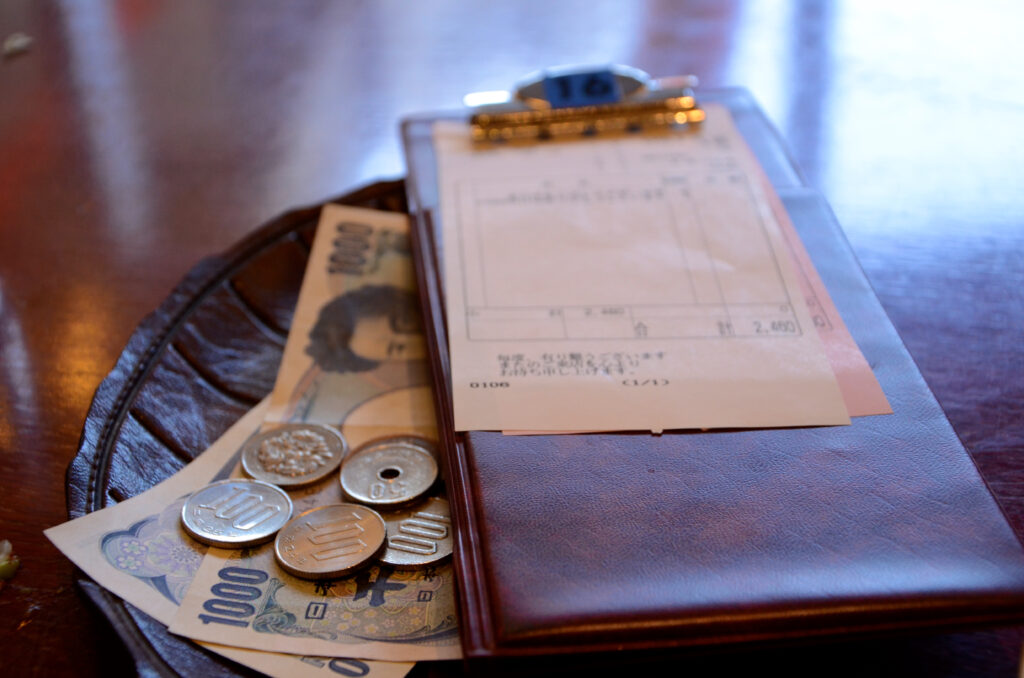These common American habits can create awkward moments overseas.

You might think you’re just being friendly, outgoing, or polite, but what feels natural in the U.S. can sometimes come off as baffling—or even rude—when you’re traveling abroad. Cultural norms vary widely from country to country, and many things Americans do every day might clash with local customs elsewhere. The smallest behaviors, like a smile or a tip, can lead to unexpected discomfort or confusion when viewed through a different cultural lens.
That’s why it’s so important to understand the nuances of etiquette before you jet off to a new destination. These aren’t just abstract social rules—they’re deeply rooted practices that reflect respect, humility, and awareness of local values. If you want to be a traveler who’s remembered for all the right reasons, it pays to adapt and observe. Here are 12 American habits that can easily cause awkward or offensive moments overseas, and how to handle them with grace.
1. Smiling at Strangers Might Make Them Suspicious

In the U.S., smiling is often seen as a universal gesture of friendliness and approachability. It’s something many Americans do without thinking—on a morning walk, during a transaction at the store, or even when passing a stranger on the street. That warm grin is typically meant to express openness and goodwill. But in some cultures, particularly in countries like Russia, Poland, or parts of Scandinavia, smiling at strangers can have the opposite effect.
Rather than seeing it as friendly, people might interpret your smile as overly familiar, fake, or even suspicious. It’s not necessarily that they’re unfriendly; it’s just that they reserve smiles for genuine interactions and familiar people. Random smiles may be read as inappropriate or unsettling, especially in more reserved societies. Understanding that different cultures use facial expressions differently can help you avoid coming off as odd or intrusive, as stated by Kathleen Rellihan at BBC Travel.
2. Tipping Generously Can Be Seen as Insulting

For Americans, tipping is a deeply ingrained practice. From restaurants to taxis, it’s customary to add an extra 15-20% as a sign of appreciation and acknowledgment of service. However, in countries like Japan, South Korea, and even parts of China, tipping can actually feel insulting. The act may suggest that the worker is underpaid or in need of charity, which can clash with the local values of pride, dignity, and professional integrity.
Service in these countries is considered part of one’s duty and pride in doing a good job is assumed—not something that requires financial reward. A tip might confuse or embarrass the person receiving it, or even be refused outright. Instead of tipping, express your gratitude with a sincere thank-you, a respectful bow, or even a compliment on the service. These gestures are more aligned with local expectations and will go a lot further, as mentioned at Lonely Planet.
3. Showing the “Thumbs Up” Sign Isn’t Always Positive

In the U.S., the thumbs-up is as close to universal approval as it gets. It’s used to say “good job,” “all’s well,” or “I’m okay.” It’s casual, upbeat, and positive. But in some parts of the world, this seemingly innocent gesture can be highly offensive. In countries like Iran, parts of the Middle East, West Africa, and even Greece, giving someone a thumbs-up is considered vulgar or obscene. It’s akin to flashing the middle finger in American culture.
The origins of these interpretations are tied to regional history and nonverbal communication styles. Travelers who flash a thumbs-up out of habit might unknowingly provoke hostility or discomfort. While it’s hard to unlearn something so automatic, it’s worth practicing more culturally neutral gestures like a smile, a nod, or a brief verbal affirmation. When visiting new places, hand signs don’t always translate—sometimes they offend instead of uplift, as reported at The Atlantic.
4. Wearing Shoes Indoors Can Be a Major No-No

In the United States, it’s not uncommon to wear shoes indoors, even in someone’s home. Depending on the household, shoes may be seen as a matter of personal preference or convenience. But in many countries—especially throughout Asia and Northern Europe—entering a home with your shoes on is a significant breach of etiquette. It’s seen as disrespectful, unsanitary, and thoughtless.
Homes in countries like Japan, South Korea, Sweden, and Finland are considered sacred, clean spaces. Bringing in the outside world—especially its dirt and germs—via footwear is considered highly inappropriate. You’ll often see clear visual cues like a shoe rack, entryway mat, or indoor slippers. Removing your shoes upon entering a home is a simple, respectful gesture that acknowledges and honors a cultural boundary.
5. Being Loud and Chatty in Public May Raise Eyebrows

Americans often take pride in being outgoing, expressive, and enthusiastic. It’s part of the cultural DNA to strike up conversations with strangers, share stories at a higher volume, and express excitement without restraint. But in many places, such as Japan, Switzerland, and Germany, this level of public exuberance can come across as intrusive or obnoxious.
Public decorum in these regions emphasizes quiet, personal space, and social harmony. Speaking loudly on the train, laughing boisterously in a restaurant, or talking animatedly on the phone in a café may turn heads for all the wrong reasons. While no one expects you to mute your personality, adjusting your volume to match the local vibe shows sensitivity and awareness.
6. Touching or Hugging Someone You Just Met Can Be Overwhelming

In the U.S., physical touch—like handshakes, hugs, or even back pats—can be part of friendly introductions. It’s often used to establish rapport quickly. But in cultures that value personal space, such as Japan, the UK, or parts of Scandinavia, touch is something that unfolds more slowly in relationships and is approached with caution.
Initiating contact too early can make someone feel uncomfortable, invaded, or startled. It’s better to follow the other person’s lead and observe local customs. In many places, a slight bow, verbal greeting, or respectful nod is far more appreciated than an unexpected hug or firm handshake. Respecting bodily autonomy is a universal sign of consideration, even if the norms vary.
7. Pointing Fingers Is Seen as Rude or Aggressive

Pointing with your index finger is a common way for Americans to indicate directions or draw attention to something. But in several cultures, including those in Southeast Asia, pointing can be viewed as aggressive or accusatory. It’s considered rude, and sometimes even hostile, depending on the context.
In countries like Malaysia or Indonesia, it’s more polite to gesture with your entire hand or a subtle chin nod instead of a finger jab. This nonverbal cue avoids any implication of blame or confrontation. Understanding how gestures are received globally can prevent many awkward interactions—and shows you’ve done your homework as a respectful guest.
8. Asking Personal Questions Can Come Across as Nosy

Americans often consider small talk an easy way to connect, and it’s not unusual to ask about someone’s job, age, or family. These questions are meant to break the ice or find common ground. However, in cultures like Germany, Finland, or South Korea, such topics can feel uncomfortably personal when broached too soon.
In these societies, people typically maintain a clearer boundary between private and public life. Questions about income, relationship status, or religion are reserved for close relationships—if they’re discussed at all. A better approach is to stick to neutral topics like the weather, travel, or local cuisine until you’ve established a deeper connection.
9. Using Your Left Hand for Anything Is Offensive in Some Cultures

In the U.S., there’s no stigma attached to left-handedness or using either hand for everyday tasks. But in many regions—including India, the Middle East, and parts of Africa—the left hand is associated with unclean acts such as personal hygiene. Using it to pass food, shake hands, or give a gift can be seen as deeply disrespectful.
Even if you’re left-handed, it’s considerate to train yourself to use your right hand in social settings when traveling through these regions. Observing how locals use their hands can offer valuable guidance. Small changes like this can earn you appreciation and prevent accidental offense in sensitive situations.
10. Cutting Food with a Fork Instead of a Knife Looks Strange

Many Americans use the “cut-and-switch” method when eating—cutting food with a knife in the right hand, then switching the fork to the right to eat. While common in the U.S., this style can look clumsy or improper in many European countries where continental etiquette reigns. In places like France or Germany, the fork remains in the left hand throughout the meal.
Table manners abroad are often more formal, and deviating from them can signal unfamiliarity or even laziness. Paying attention to how locals use their utensils—and adjusting accordingly—demonstrates cultural awareness. Even small acts like this can help you blend in and avoid standing out in an unintended way.
11. Laughing Too Loudly May Be Misinterpreted

A big, booming laugh might be celebrated in many American circles, symbolizing joy, confidence, or sociability. But in cultures that value subtlety and modesty, such as Japan or South Korea, loud laughter in public can be seen as inappropriate. It may signal a lack of control or disregard for communal harmony.
That doesn’t mean you shouldn’t enjoy yourself, but toning down your reactions can show sensitivity to your surroundings. A smile, gentle laugh, or even a quiet chuckle can go a long way. It’s not about changing who you are—it’s about adapting out of respect for those around you.
12. Leaving Food on Your Plate Can Be Insulting

In some parts of the U.S., leaving a little food on your plate might signal that you’re full or being polite by not overindulging. But in many cultures—including China, India, and the Philippines—leaving food behind can be interpreted as a sign that the meal was not satisfying or that the host gave you too much.
To avoid this unintended insult, it’s better to take smaller portions and finish everything on your plate. Doing so shows appreciation for the effort that went into preparing the meal. Clean plates reflect gratitude and respect in cultures where hospitality is both a duty and a deep point of pride.
